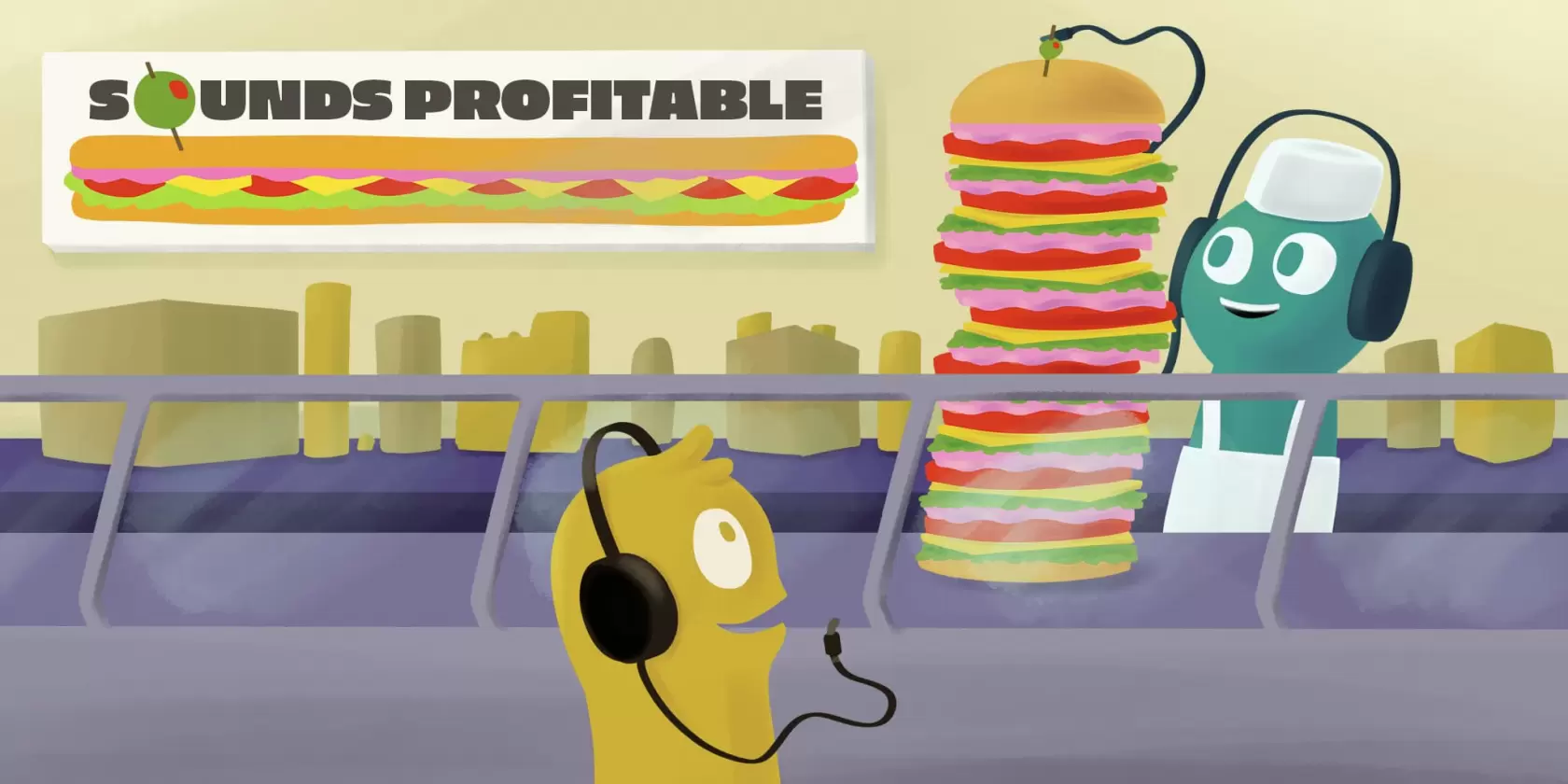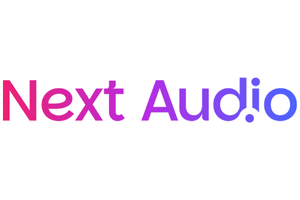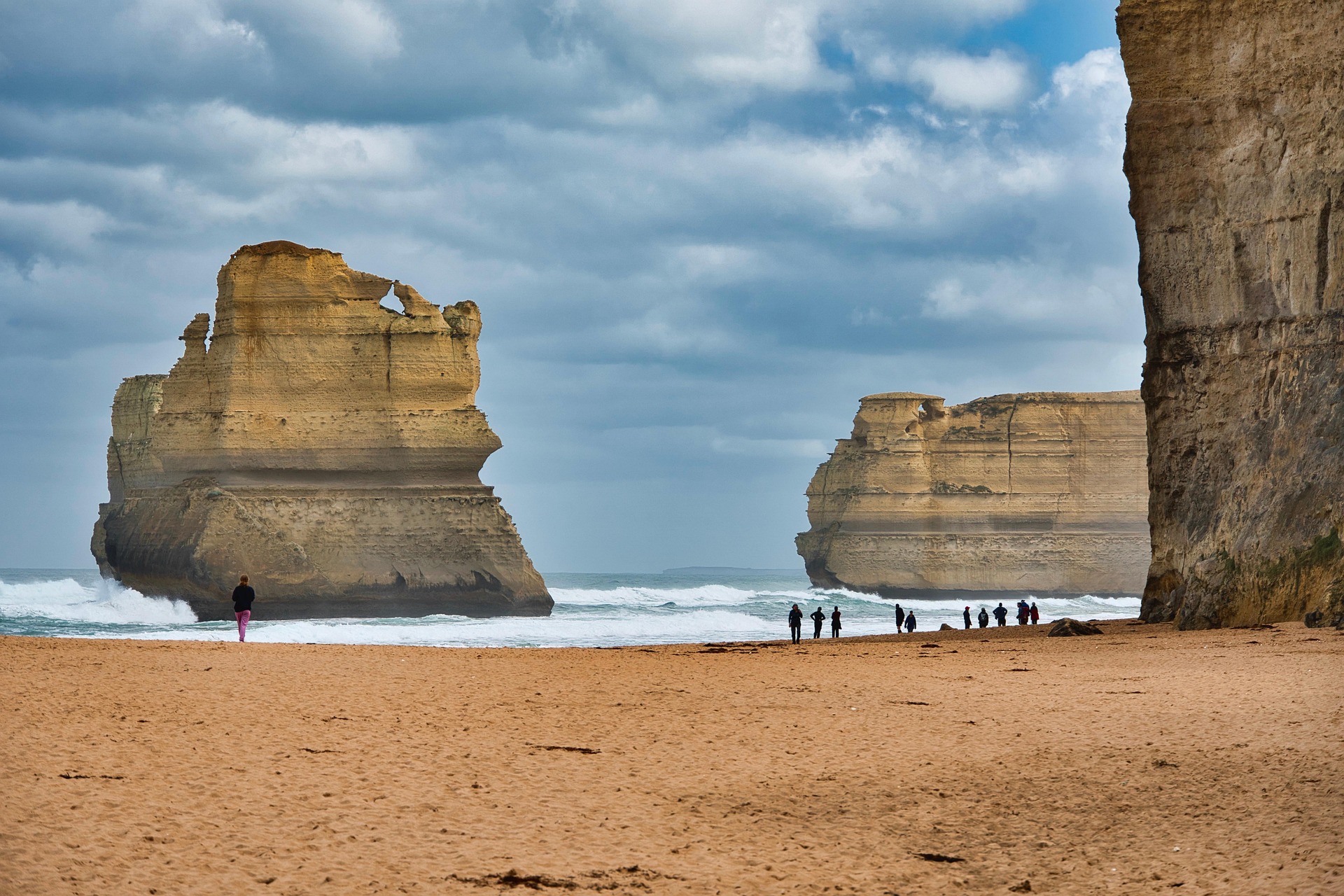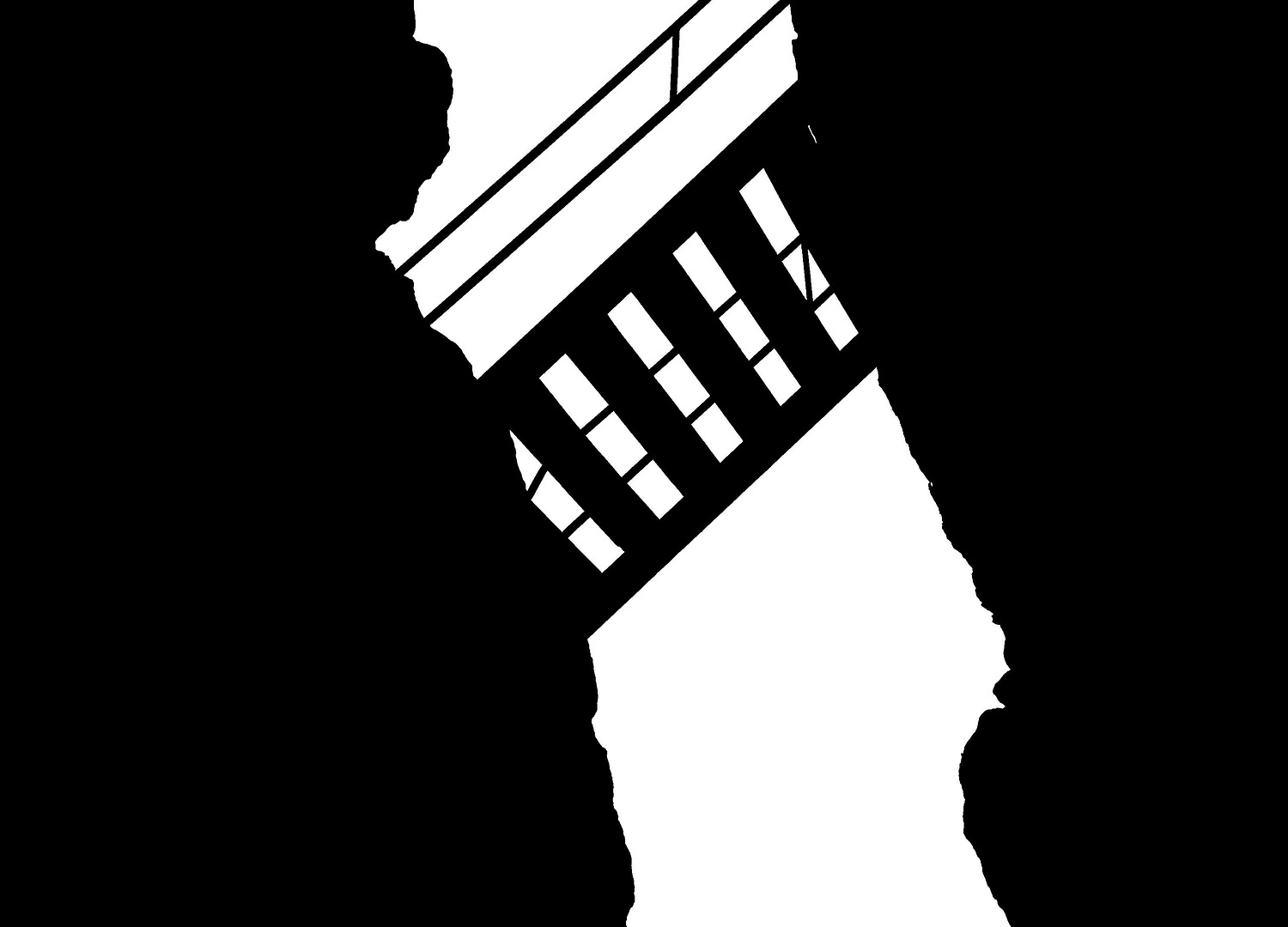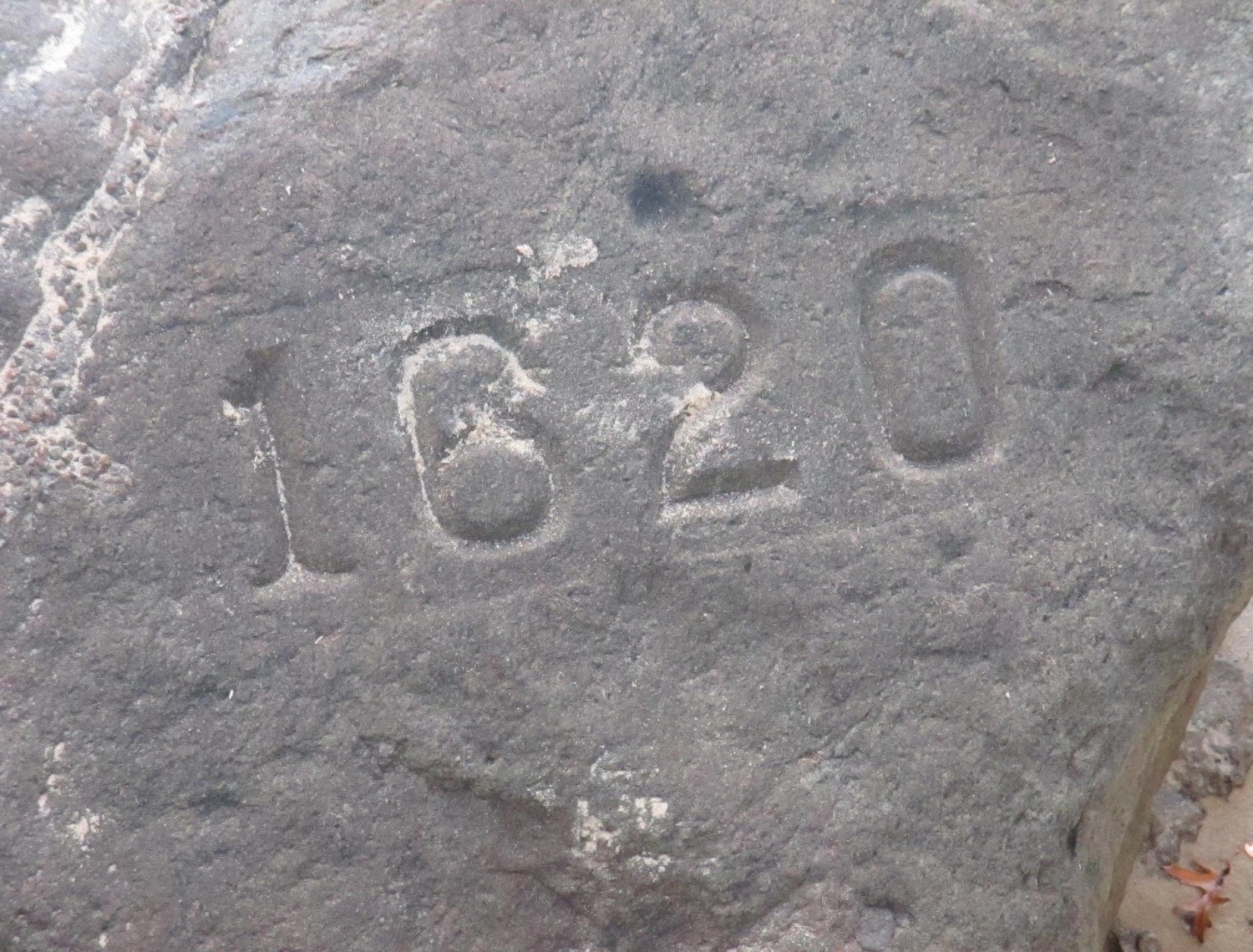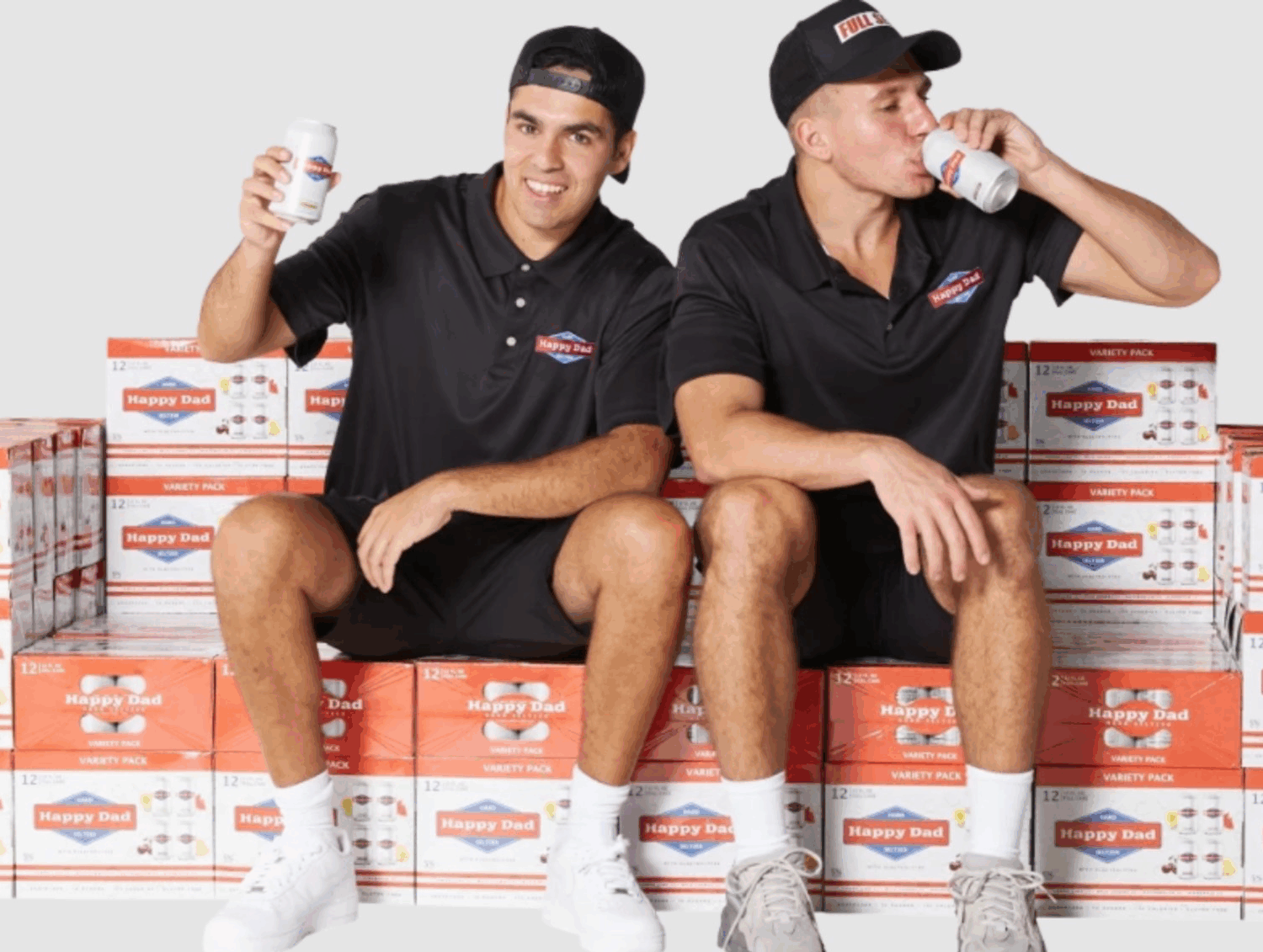TODAY AT 3PM CT! After These Messages - Creative Execution in Podcast Advertising. The latest research study from Sounds Profitable. Watch it in person at Podcast Movement or streamed live here.
Earlier this month, Tom Webster talked about programmatic and dynamically inserted advertising as a potential lifeline for the long tail of podcasting. Still, even with the best intentions, bad ad delivery can happen. But why does it happen? Well, here’s my potentially controversial opinion:
Bad ad delivery in a podcast is the fault of the publisher.
Not solely the publishers fault, but ultimately the publishers fault as they sign the contracts with whichever advertiser or intermediary partner provided the ads. They either gave authority for those partners to place ads directly through their platform or, worse, they served the ad loads themselves. And while that absolutely doesn’t remove any blame and responsibility from those further up the advertising ladder, we need to start at the source and work our way towards a solution.
And that solution is a Program Director.
DAI Is Not The Villain
There is no polite way to say that I could screw your podcast up with bakedIn ads the same way everyone complains about dynamic ad insertion and programmatic.
Alone, at the wheel of your podcast, I would slam in three ads for mental help apps back to back. All your ads breaks would go four ads deep. And occasionally I’d run a 4 minute ad just because I can and nobody can stop me. Because I’m the editor, the final pass. The last human piece of validation your podcast has before it gets uploaded and nobody at your company ever listens to that podcast again once I’m done with it.
But that doesn’t happen.
Because the editor of the podcast has their name in the credits and wants to continue working in this industry. If they received an ad load to bake in to the caliber of what some allow to be built through DAI, they’d push back because their name and reputation is on the line. So instead, they build episodes for you that have markers where you ask for them, for you to use adtech to place the ads.
This giant gap between the editor finishing the content and the episode hitting the listeners ears is one we need to fill. It is the leakiest point in podcasting today, with the least oversight and the most trust on technology to sort things out. Bad ads happen in many different ways, from incredibly poor audio quality, to poor contextual alignment, and sometimes great ads are drown out by bad ad execution across the entire episode.
Every time a podcast episode is assembled, it’s like making a sandwich. Sometimes, that sandwich is terrible, and ultimately someone needs to consider every possible way that sandwich can be assembled, and take ownership of the true final product before it gets served.
Which is why, the only true answer to this solution is an individual or team responsible for signing off on the complete package, the show stuffed to the brim with potential ads, and confirm that it fits their vision fully.
Taking Control
The dream of set-it-and-forget-it monetization is a lie, and we need to get over it. Fast.
The first step to moving through that lie is to acknowledge that someone needs to own the operational aspect of advertising for your podcast. In radio, that role is called a Program Director. In the same way we have producers at the helm of building the podcast, we need equivalent oversight on the monetization side. Whether this person handles everything themselves, manages an internal team, or manages the relationship with an external partner, they need to be dedicated to this role if monetization is a critical part of your business plan.
So let’s define what exactly this role should be in charge of defining:
Show Structure
- How many ad breaks does each episode have?
- How many ads per ad break?
- What are the IAB Content categories for the show?
- What are the podcast categories (Apple/Spotify) for the show?
Campaign Requirements
- How is inventory forecasting handled?
- Do you allow sellers to hold inventory, and how long until it expires?
- What fields are non-negotiable in campaign setup and who is responsible for providing them? (e.g.: IAB Content Categories provided by the Advertiser)
Creative Executions
- What ad lengths are accepted?
- What type of ads do you offer (host, producer, or announcer read)
- What format of ads do you offer (bakedin, DAI, programmatic)
- Who approves the creative before allowing it to go live on an episode?
- If automated, what guidelines does it adhere to?
- If manual, what’s the turnaround time?
Business Decisions
- What third-party solutions do you work with for prefix attribution, DAI attribution, and brand lift surveys? Are you willing to work with others?
- Who covers the cost of using third-party attribution or analytics solutions?
- Do you provide third-party validation (air checks, analytics, brand suitability)?
- What demographics do you make available for buyers? How often is it updated and how is it collected?
- Where is your inventory available for purchase and who is the primary contact for each channel?
- Direct
- Second seat sellers
- Marketplaces
- Programmatic
- Do you offer competitive separation?
- Do you offer any targeting (contextual, geographical, demographical, behavioral, etc)?
Everything on here needs to be fully decided for every new podcast, and often revisited for all podcasts quarterly. The more you rely on third parties for selling your inventory or other operational needs, the more you need to check to see if everything is being followed as agreed upon, processes change constantly in a growing industry.
This role not only defines the advertising structure of the podcasts for a network, but maintains the relationships with external partners, to keep up to date on their offerings and identify if those are new solutions they want to offer internally.
And this person’s name absolutely should be in the credits.
Wrapping It Up
Advertising is a major part of the podcast industry and allowing advertisers to be blamed for shortcuts publishers or adtech partners take is incredibly damaging. We do need better tools, that’s crystal clear, but better tools do absolutely nothing if nobody is steering the ship.
By splitting these responsibilities between multiple people, you have no clear leadership from the ad operations side of your business. Nobody is 100% committed to these incredibly critical tasks and ultimately they’ll let them fall by the wayside. And all of these decisions are interconnected.
And maybe, during a recession is the wrong time to advocate for a new hire, but consider that someone internal to your company already knows or does a substantial amount of this work. Perhaps, they could pivot into this role.
We’re in the age of optimization for podcasting. Inventory is filling up. Strategy is going to matter more than anything else. This role is the first step in guaranteeing that you can maximize margin while the industry swells all around us.
New Sponsors
Sounds Profitable exists thanks to the continued support of our amazing sponsors. Each sponsor receives one hour of consulting per month as a way to say thanks.
- Nomono: A self-contained recording kit for capturing interviews in the field. Completely wireless from microphone to cloud.
- Dotdash Meredith is America’s largest digital and print publisher, with brands including PEOPLE, Better Homes & Gardens, Allrecipes, Investopedia, Verywell Mind, Travel + Leisure, and Southern Living.
Want to learn more about sponsorship? Hit reply or send us an email!
Market Insights with Magellan AI
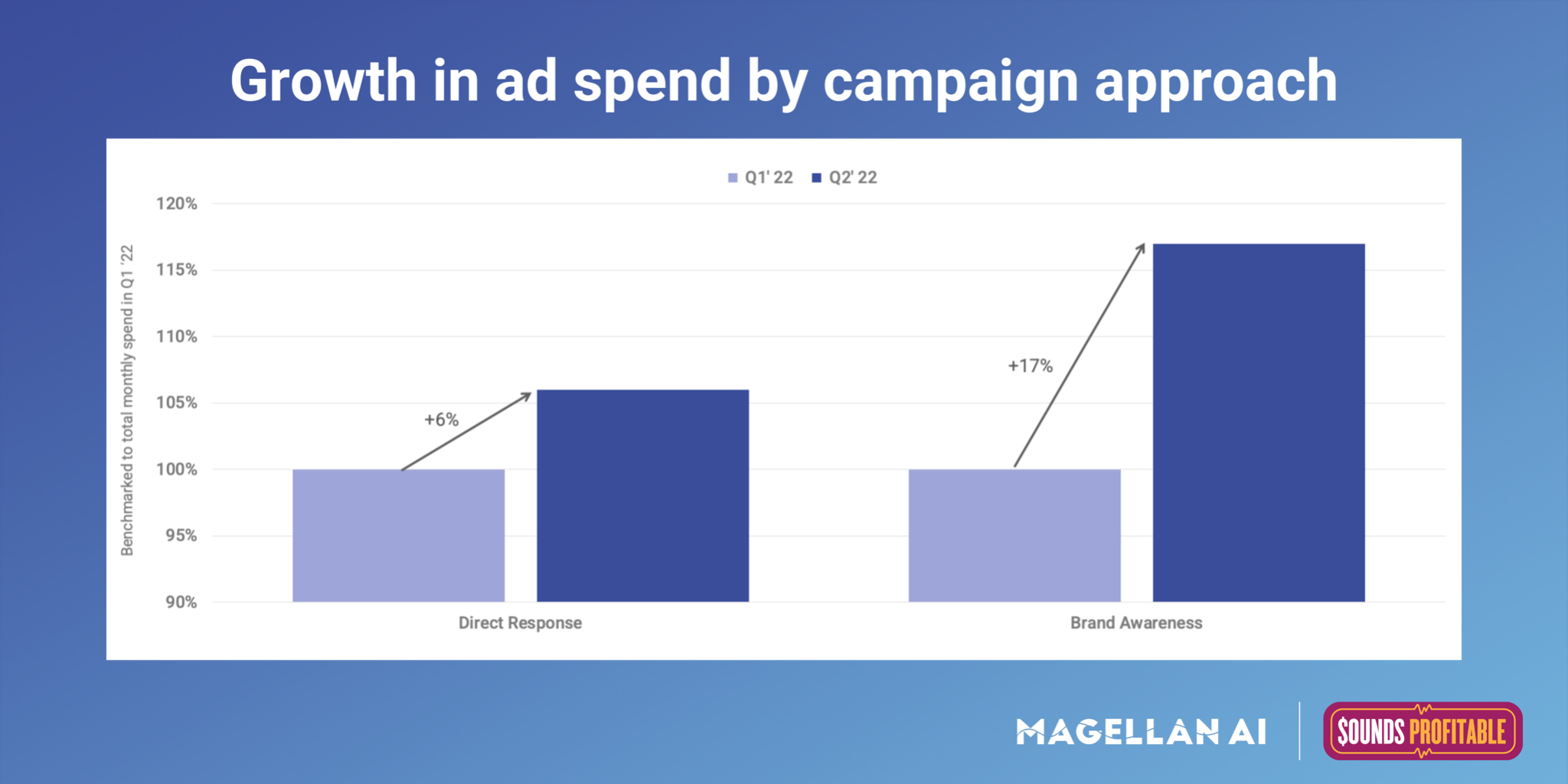
This week we dove into some market-wide trends relating advertiser campaign approaches. We broke out how much total spend has increased between Q1 and Q2 for Direct Response and Brand Awareness advertisers. We found that across both campaign approaches spend as increased, but to a greater degree for Brand Awareness advertisers.
Comparatively Direct Response and Brand Awareness advertiser spend is up 32% and 49% year-over-year, respectively. These spending habits track with some other trends Magellan AI has detected in the podcast space, namely the increased adoption of programmatic ads. As more brands continue to advertise programmatically, we can expect to see those trends reflected in higher levels of spend for Brand Awareness.
Interested in more insights like this? Download the Q2’22 Podcast Advertising Benchmark Report for a full analysis
Anatomy of an Ad with ThoughtLeaders

Sponsoring brand: Amara Organic Baby Foods
Where we caught the ad: Didn’t I Just Feed You
Who else has sponsored this podcast? Nutrafol, All Better Co, KiwiCo
Where else has this brand appeared? Badass Breastfeeding Podcast, Newbies, Mom Culture Podcast
Why it works: ‘Candid weekly podcast about feeding our families’ – sounds like Amara Organic Baby Foods found their ideal podcast to sponsor. The hosts of this podcast, Stacie and Meghan, share meal ideas, how to cope with picky eaters and tips for eating at restaurants with the entire gang. So, putting a spotlight on baby food that is both affordable and convenient just makes sense. It was nice to hear that although the hosts haven’t tried Amara Organic Baby Foods, they asked their ‘baby mama’ listeners for their feedback.

